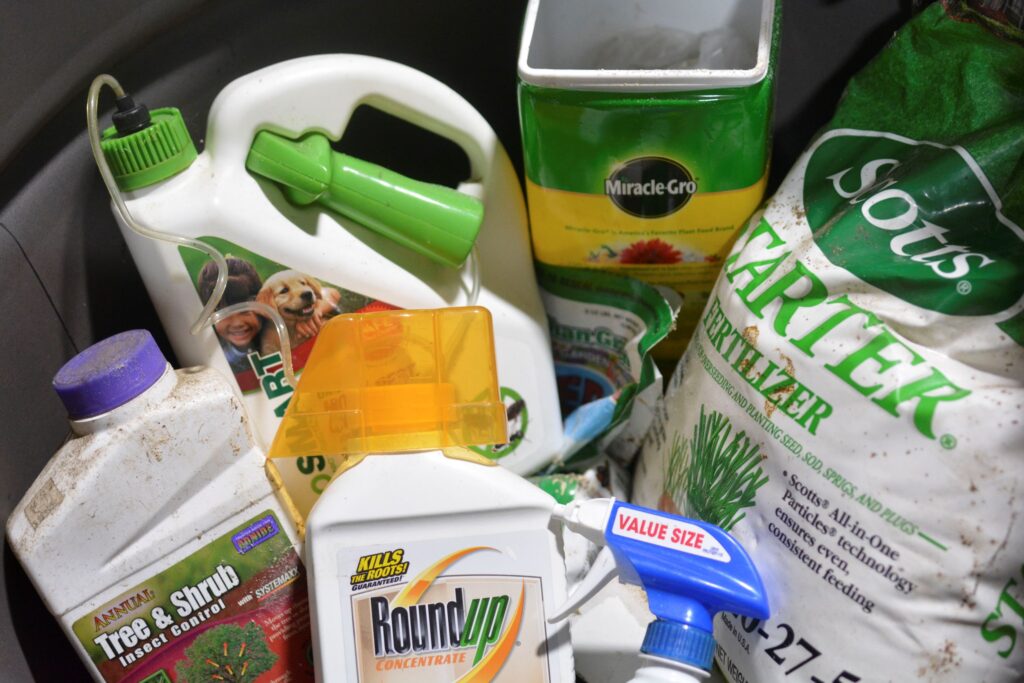After a long snowy winter or a dry hot summer, your lawn and garden might need some serious TLC to get back to 100%. For beautiful green lawns and bountiful gardens, fertilizers are what we commonly reach for at home. And while these products are perfectly safe to use, they need to be treated like the hazardous product they are when it comes to application, storage, and disposal to avoid becoming a danger to you and the environment.
The Three Different Kinds of Fertilizer
Fertilizer is a catch-all term for products that promote plant growth – typically lawns and gardens. However, this broad application of the word fertilizer means not all can be treated the same. When you go to the store to buy fertilizer, generally you’re getting one of three kinds:
- Organic Fertilizers: These generally contain plant matter, animal remains, and naturally occurring minerals and can usually be treated like yard waste.
- Chemical Fertilizers: These products use artificially produced nitrogen, phosphorus, and potassium in large enough amounts to be hazardous, especially in wastewater.
- Biosolid Fertilizers: Generally used in commercial applications, biosolid fertilizers are produced from treated sewage sludge, posing a threat to the local water supply.
Before you buy, make sure to read the labels! Learn more in our blog, What to Do to Have Fewer Hazardous Products at Home.
The Danger of Fertilizers on the Environment
While fertilizers pose little risk to humans when properly applied and stored, they can severely affect the environment when misused. Generally speaking, the most significant risk fertilizers pose is to the environment, specifically bodies of water. When fertilizer contaminates a body of water, it throws off the natural balance of the water’s ecosystem. For example, phosphorus – one of the major ingredients in fertilizer – can spike algae growth in lakes, rivers, and streams, choking out and killing other plants and animals that live there.
Dealing with Leftover Fertilizer
Fertilizers, especially chemical and biosolid fertilizers, cannot be recycled. You can store fertilizers in a cool, dry place for as long as the packaging directs. Never mix fertilizers, and place liquid fertilizers in plastic bags or containers to prevent leaking. Keep it out of reach of children and pets.
If you cannot use your fertilizer before it expires, ask neighbors and friends if they might be able to use it. If not, you’ll need to find a local household hazardous collection center that accepts fertilizers. You can also contact your local garden supply store to see if they accept unused fertilizer for disposal. If you’re looking for an easy solution, check out our Household Hazardous Products Collection Centers! We can help with fertilizers and other gardening products like pesticides, along with a wide array of other household hazardous waste. To learn more, reach out to us today!



Leave a Reply